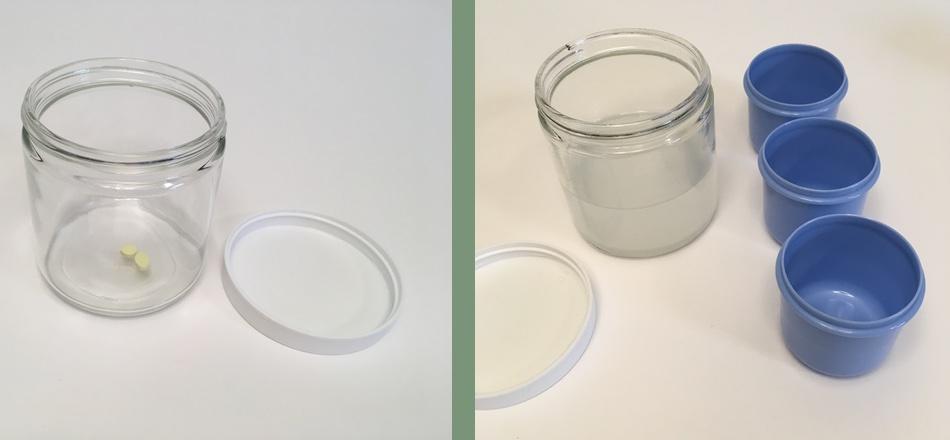This method involves taking a tablet or powdered (non-beaded) capsule and creating a liquid mixture by combining the drug with a liquid such as water, milk, or a commercial suspending fluid. Reductions in dose are then made from the liquid by measuring a calculated volume with a non-needle syringe or similar measuring instrument. In addition to syringes, glass jars with tight-fitting lids are the other primary equipment required.
Pros
- Relatively inexpensive.
- Allows for flexible, personal control during a taper.
- If the drug is already in a taper-friendly form, typically doesn’t require a new, changed prescription from a prescriber.
Cons
- Requires focus and careful attention.
- Requires fine motor skills for using non-needle syringes, pipettes, or cylinders and accurately measuring volume.
- May be difficult if traveling.
- May require refrigeration.
Which taper schedule it can work with
- Daily Microtaper
- Cut-and-hold

